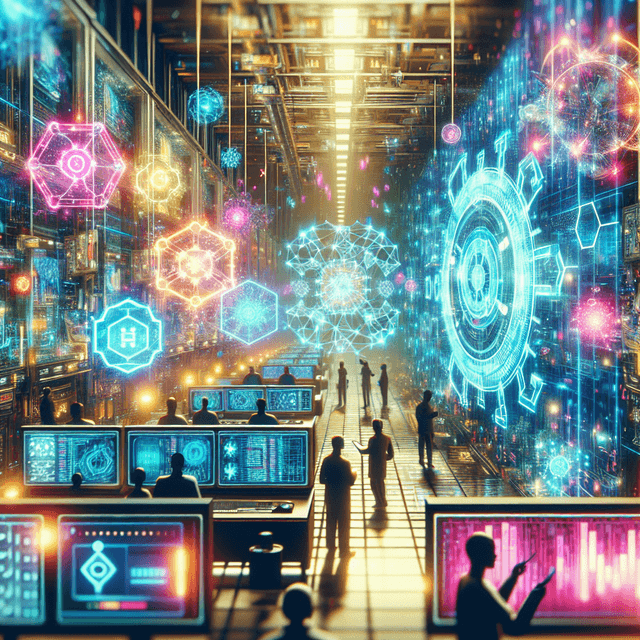

Revolutionizing Tools: How AI and Web3 are Transforming Our Future
Share this blog on social media:




In 2025, the landscape of technology has shifted dramatically thanks to revolutionary advancements in artificial intelligence (AI) and the emergence of Web3 innovations. These breakthroughs are not just enhancing user experiences but are also reshaping entire industries, heralding a new era of efficiency, transparency, and user empowerment. With AI achieving remarkable capabilities in natural language understanding and generation, we are witnessing an unprecedented level of seamless interaction between humans and machines. Meanwhile, the decentralized frameworks introduced by Web3 technologies are giving users enhanced control and privacy over their digital identities.
One of the most exciting trends emerging from this intersection of AI and Web3 is the rise of decentralized autonomous organizations (DAOs). By leveraging AI for governance and decision-making, DAOs are creating more democratic and efficient organizational structures. This convergence allows for smarter, data-driven decisions while still adhering to the principles of decentralization that Web3 embodies. As these technologies evolve, it is projected that by 2025, over 70% of enterprises will have integrated AI-driven solutions into their operations, resulting in an impressive 40% increase in productivity. With over 1 billion wallet users globally, Web3 adoption is making waves, fundamentally changing how we engage with technology.
Looking ahead, the future of industries appears bright, particularly with the integration of AI and Web3. Predictions indicate a remarkable 25% growth in decentralized finance (DeFi) applications, alongside a surge in platforms dedicated to AI-generated content. In sectors like healthcare, AI is being utilized for predictive analytics and tailored treatment plans, while blockchain technology enhances transparency and traceability within supply chains. These real-world applications not only improve operational efficiency but also provide consumers with more personalized and trustworthy experiences.
However, the journey towards a fully realized AI-Web3 ecosystem is not without obstacles. Key challenges such as regulatory hurdles surrounding data privacy and security need to be addressed to foster trust and confidence among users. Additionally, establishing standardized frameworks for interoperability between various decentralized systems is crucial for maximizing the


